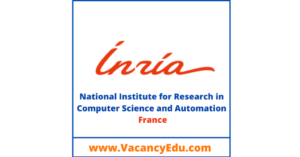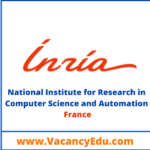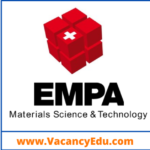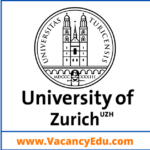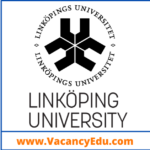Inria, France invites online Application for various Postdoctoral Fellowship in their different Departments. We are providing a list of Postdoc Fellowship positions available at Inria, France.
Eligible candidate may Apply as soon as possible.
(01) Postdoctoral Fellowship Position
Postdoc Fellowship Position summary/title: Post-Doctoral Research Visit F/M privacy preserving federated learning with applications in medical domains
This post-doctoral position will be supported by the HE Trumpet project, the HE Flute project and/or the PEPR IA Redeem project. While this position will be in the MAGNET team in Lille, we will collaborate with the several European project partners.
While AI techniques are becoming ever more powerful, there is a growing concern about potential risks and abuses. As a result, there has been an increasing interest in research directions such as privacy-preserving machine learning, explainable machine learning, fairness and data protection legislation.
Privacy-preserving machine learning aims at learning (and publishing or applying) a model from data while the data is not revealed. Notions such as (local) differential privacy and its generalizations allow to bound the amount of information revealed.
The MAGNET team is involved inthe related TRUMPET, FLUTE and REDEEM projects, and is looking for team members who can in close collaboration with other team members and national & international partners contribute to one or more of these projects. All of these projects aim at researching and prototyping algoirhtms for secure, privacy-preserving federated learning in settings with potentially malicious participants. The TRUMPET and FLUTE projects focus on applications in the field of oncology, while the REDEEM project has no a priori fixed application domain.
Deadline : 2024-12-31
(02) Postdoctoral Fellowship Position
Postdoc summary/title: Post-Doctoral Research Visit F/M PostDoc position in Software Language Engineering.
Currently, there is a significant transformation underway in car manufacturing, driven by the concept of Software Defined Vehicles. Software Defined Vehicles (SDVs) allow cars to be upgraded throughout their lifetimes via a centralized architecture, enabling updates and integration of new applications to enhance their functions. This represents the next revolution in the automotive industry, for which many manufacturers are preparing.
A primary objective of Software Defined Vehicles is to establish a flexible and scalable architecture, facilitating faster development and integration of new features over the vehicle’s lifespan.
In this context, HAL4SDV is an innovative collaborative European project that is starting, bringing together major industrial and academic partners to establish a set of standards and new development practices aimed at making SDV development more agile.
The Kairos team, a collaboration between Inria Sophia Antipolis and the I3S laboratory, is seeking a researcher to contribute to this ambitious European project.
Deadline : 2024-12-31
Looking for more Postdoctoral Positions Click Here
(03) Postdoctoral Fellowship Position
Postdoc Fellowship Position summary/title: Post-doctoral research position on plant disease identification based on deep learning
The control of plant diseases is a major challenge to ensure global food security and sustainable agriculture. Recently, deep learning based image recognition techniques have shown very promising results towards improving existing procedures for early detection and diagnosis of plant diseases. However, the performances are still insufficient and needs to be significantly improved through (i) the integration of new massive training data at large taxonomic and geographic scales (in particular via ePhytia and Pl@ntNet), and (ii) the development of more effective AI models combining visual information (photos) with other environmental and contextual information (e.g. climate, land use, soil, etc.). The selection of these complementary modalities will be based on their benefit in terms of recognition accuracy but also in terms of their ease of integration and maintenance in the Pl@ntNet platform.
Deadline : 2024-12-31
(04) Postdoctoral Fellowship Position
Postdoc Fellowship Position summary/title: Post-Doctoral Research Visit F/M Faster Bilevel Optimization to Accelerate Machine Learning
Deadline : 2024-12-31
(05) Postdoctoral Fellowship Position
Postdoc Fellowship Position summary/title: Post-Doctorant F/H Sructured Riemannian Covariance Learning, application to brain connectivity
L’objectif principal de ce projet est donc de développer des modèles de connectivité plus utilisables, en s’appuyant sur des estimations robustes de la covariance et en tenant compte de la structure des données.
Tout d’abord, nous proposons de revisiter le cadre riemannien afin d’incorporer plus systématiquement l’information préalable et la régularisation dans l’estimation des modèles de covariance. Deuxièmement, nous proposons d’aborder explicitement l’estimation des modèles de covariance pour les données structurées en
– Améliorer l’extraction d’informations à partir de données longitudinales, en distinguant les aspects spécifiques au sujet et les aspects longitudinaux du bruit d’échantillonnage.
– en renforçant l’invariance de l’origine dans les études multicentriques (voir par exemple [7]), mais le contexte de l’IRMf est très différent : dans l’IRMf, il n’y a pas d’incertitude quant à l’identification de la source. En ce qui concerne l’invariance par rapport à l’origine des données, nous proposons d’adopter une approche différente de celle de [10], en nous concentrant davantage sur la représentation riemannienne. En outre, nous aimerions réévaluer le cadre riemannien le mieux adapté : le cadre affine-invariant ou le cadre de Bures. L’avantage du cadre de Bures a été bien illustré dans [11]. bien illustré dans [11].
Deadline : 2024-11-30
Click here for “Postdoc Application Cover Letter Template”
Click here to know “How to write a Postdoc Job Application or Email”
(06) Postdoctoral Fellowship Position
Postdoc Fellowship Position summary/title: Post-doctoral position in deep learning for large-scale biodiversity mapping
The Pl@ntNet team is looking for a post-doc with strong skills in deep learninn, Python development and, ideally, in GeoSpatial data. Pl@ntNet is a citizen observatory of plant biodiversity and a research platform at the crossroads of data science, ecology and artificial intelligence. The Pl@ntNet mobile application is used by tens of millions of users worldwide.
You will work mainly in the Montpellier Computer Science Laboratory (LIRMM) as a starting researcher at Inria. Inria is a major player in computer science research worldwide; it is the managing organization of the Pl@ntNet consortium.
You will work in a quite unique environment at the forefront of digital technologies for biodiversity management. In particular, you will work in the context of the GUARDEN EU project aimed at mobilizing biodiversity data cubes in conjunction with other environmental data and scenarios, as the basis for models and indicators of past, current and future biodiversity.
Deadline : 2024-11-30
(07) Postdoctoral Fellowship Position
Postdoc Fellowship Position summary/title: Post-Doctoral Research Visit F/M Optimization of therapeutic strategies for pediatric cancers using mathematical modeling of intra-tumor heterogeneity
- Laura Broutier’s team (Cell death and childhood cancers team, Center of Research on Cancer of Lyon (CRCL), Inserm, CNRS)
- Eddy Pasquier’s team (REMAP-4Kids, Center of Research on Cancer of Marseille (CRCM), Inserm, CNRS)
- COMPO (Inria and CRCM, Marseille)
Deadline : 2024-11-30
(08) Postdoctoral Fellowship Position
Postdoc Fellowship Position summary/title: Post-Doctoral Research Visit F/M Anonymization of a dataset based on a questionnaire survey
The Comete project team at the Inria Saclay Center specializes in security and privacy protection and has sixteen researchers (https://www.inria.fr/fr/comete). The team studies concepts emerging from the modern era of computing. Security and privacy protection are among the fundamental concerns that arise in this context: the frequent interaction between users and electronic devices, and the continuous connection between these devices and the Internet, offer malicious agents the possibility of collecting and storing a huge amount of information without users even being aware of it. In addition to security issues, issues of correctness, robustness, and reliability are made more difficult by the complexity of modern systems because they are highly concurrent and distributed. Despite being based on impressive engineering technologies, they are still prone to faulty behavior due to errors in software design. To address these challenges, the team studies formal frameworks for specifying these systems, theories for defining desired correctness and security properties, and methods and techniques for proving that a system satisfies these properties.
Deadline : 2024-11-30
Click here to know “How to Write an Effective Cover Letter”
(09) Postdoctoral Fellowship Position
Postdoc Fellowship Position summary/title: Post-Doctoral Research Visit F/M Cooperative Inference Strategies
An increasing number of applications rely on complex inference tasks based on machine learning (ML). Currently, two options exist to run such tasks: either served directly by the end device (e.g., smartphones, IoT equipment, smart vehicles) or offloaded to a remote cloud. Both options may be unsatisfactory for many applications: local models may have inadequate accuracy, while the cloud may fail to meet delay constraints. In [SSCN+24], researchers from the Inria NEO and Nokia AIRL teams presented the novel idea of inference delivery networks (IDNs), networks of computing nodes that coordinate to satisfy ML inference requests achieving the best trade-off between latency and accuracy. IDNs bridge the dichotomy between device and cloud execution by integrating inference delivery at the various tiers of the infrastructure continuum (access, edge, regional data center, cloud). Nodes with heterogeneous capabilities can store a set of monolithic machine-learning models with different computational/memory requirements and different accuracy and inference requests that can be forwarded to other nodes if the local answer is not considered accurate enough.
Deadline : 2024-11-30
Connect with Us for Latest Job updates
(10) Postdoctoral Fellowship Position
Postdoc Fellowship Position summary/title: Post-Doctoral Research Visit F/M Model placement in inference delivery networks
In this postdoc, we will study the problem of AI model placement in an IDN. This is a challenging optimization problem that involves a non-trivial tradeoff between model effectiveness, inference latency, and resource availability while also dealing with the natural dynamicity of the network, e.g., due to users’ request process or changes in available computing and communication resources.
We will also consider other metrics, such as energy consumption, in the objective functions and networking constraints for systems where the network presents some inelasticity (see also [1]). We will leverage multi-objective optimization techniques (e.g., Pareto efficient solutions) and transfer learning techniques to adapt models across nodes with different levels of knowledge and resource availability. We will also rely on online learning approaches to achieve model placements with adversarial guarantees regarding regret.
Deadline : 2024-11-30
(11) Postdoctoral Fellowship Position
Postdoc Fellowship Position summary/title: Post-Doctoral Research Visit F/M Post-doctoral in the semantics of quantum computation and graphical languages
With the help of Renaud Vilmard and Vladimir Zamdzhiev, the recruited person will be taken to develop a graphical and categorical framework for quantum computation.
For a better knowledge of the proposed research subject :
A state of the art, bibliography and scientific references are available at the following URL, do not hesitate to log in: https://lmf.cnrs.fr/Research/Quan
Deadline : 2024-11-30
Polite Follow-Up Email to Professor : When and How You should Write
(12) Postdoctoral Fellowship Position
Postdoc Fellowship Position summary/title: Post-Doctoral Research Visit F/M Adaptive finite element computations for time-dependent wave propagation problems with dynamic meshes
A posteriori error estimation for wave propagation is very involved. A novel approach to a posteriori error estimation of finite element discretizations of time-dependent wave propagation problems has been recently introduced and will be the main line of investigation of the postdoctoral research program.
Currently, this approach is limited to static meshes, which can be adapted in space but are fixed in time. However, to deliver optimal performance, adaptive schemes require dynamic meshes that are allowed to change as the wave propagates through the computational domain. The goal of the postdoctoral project is therefore to develop a posteriori error estimators that are able to handle dynamic meshes.
Deadline : 2024-10-31
(13) Postdoctoral Fellowship Position
Postdoc Fellowship Position summary/title: Post-Doctoral Research Visit F/M Event detection in Tokamak simulations
This project intends to provide efficient statistical modeling tools for processing tokamak simulation outputs. The goal of these tools will be to help identify anomalies or errors in the data, which can indicate problems with the HPC system or the underlying algorithms. This information can then be used to adjust the computations and ensure that the HPC system is running smoothly and efficiently. Moreover, statistical processing can also be used to analyze the outputs and detect events of interest to select the right snapshots of the simulation to allow post-processing of the results. By properly selecting the information to save, we can ensure that the HPC system is able to handle large volumes of output without running into storage or bandwidth limitations.
Deadline : 2024-10-31
(14) Postdoctoral Fellowship Position
Postdoc Fellowship Position summary/title: Post-Doctoral Research Visit F/M Post-doctoral position in mathematical and/or computational biology : Coupling structured population dynamics models with physiologically-based pharmacokinetic models to assess reproductive fitness
Deadline : 2024-10-31
(15) Postdoctoral Fellowship Position
Postdoc Fellowship Position summary/title: Post-Doctoral Research Visit F/M EICACS
The required research includes in-depth analysis of selected software libraries. Specific metadata information associated to each software under investigation needs to be identified and registered, including cybersecurity risks related to the usage of each software library.
Based on relevant state- of- the- art, preliminary ideas how to support the mitigation of cognitive biases – included in a speech and data processing environment that is used intelligence analysis.
Some other directions that the research can contribute concerning speech processing are :
- Speaker verification using machine learning model
- Knowledge reasoning for semantic audio segmentation
Deadline : 2024-10-31
(16) Postdoctoral Fellowship Position
Postdoc Fellowship Position summary/title: Post-Doctoral Research Visit F/M Sensitivity analysis for the repressilator gene circuit
The objective of this project is to develop and program sensitivity estimation methods for continuous-time Markov chain model of biochemical reactions inside cells that are coupled to the dynamics of growing populations. In addtion, a stochastic model of the repressilator gene circuit in bacteria will be constructed based on single-cell micoscopy data of our collaborators and the sensitivity estimation methods will be applied to this model to better understand how growth of the bacteria affects the functionality of the repressilator circuit.
Deadline : 2024-10-31
Top 25 Free Statistical Analysis Software 2024
(17) Postdoctoral Fellowship Position
Postdoc Fellowship Position summary/title: Post-Doctoral Research Visit F/M Individual-based modeling of coupled single-cell and population processes
This research project aims to better understand the mechanisms related to gene expression and plasmid
copy number fluctuations in a cell population with application to synthetic biology.
Modelling gene expression has been the subject of much interest in the literature. The models proposed are generally single-cell, and based on the central dogma of molecular biology, which describes a simplified scheme whereby instructions on DNA are transcribed into messenger RNA, which in turn is translated into proteins. In this scale, the environment is often assumed to be highly invariant and the number of molecules for each protein is small and therefore subject to considerable stochasticity. These numbers of molecules are modelled using continuous-time Markov chains (CTMC). In the scale of the demography, this individual dynamics becomes rapid and can be approximated by continuous models like ODEs. In addition, it becomes essential to take into account the unequal sharing of all this molecular content at the time of cell division. This mechanism is well known to enhance the heterogeneity of gene expression at the population level. How to develop models that capture all these aspects while remaining analytically or numerically tractable is an open research question and will be the focus of this project.
Deadline : 2024-10-31
(18) Postdoctoral Fellowship Position
Postdoc Fellowship Position summary/title: Post-Doctoral Research Visit F/M Exploring Variability in Medical Image Segmentation: New Metrics and Frameworks
The aim of the postdoctoral project is to develop innovative methodologies for assessing the quality of anatomical structure or pathology reconstructions from medical images. A critical but often overlooked issue in this domain is the inter- and intra-rater variability in image segmentation, which complicates the quantitative evaluation of segmentation algorithms beyond commonly used metrics like the Dice score or Hausdorff distance.
This project seeks to explore statistical frameworks that introduce novel segmentation metrics, particularly in cases involving multiple reference segmentations. The effectiveness of these metrics will be evaluated through several practical applications, providing a more robust means of performance assessment in medical image analysis.
Deadline : 2024-10-31
(19) Postdoctoral Fellowship Position
Postdoc Fellowship Position summary/title: Post-Doctoral Research Visit F/M Adaptivity (regularization, solvers, meshes) and a posteriori error estimators for the geological sequestration of CO2 in the framework of the SPE 11 benchmark
The main goals are to:
- Put in place a posteriori error estimators which allow to quantify the error between the numerical approximation (known) and the exact solution (unknown).
- Develop adaptive balancing strategy for the regularization parameter, the iterative linearization algorithm (Newton), and the iterative linear algebraic solver. This should lead to robust solvers and enable to significantly reduce the usual number of linear and nonlinear iterations.
- Develop adaptive steering of the choice of time step and of the local mesh refinement. This will lead to adaptive front tracking and automatic recognition of viscous and gravitational phenomena.
Deadline : 2024-10-24
How to increase Brain Power – Secrets of Brain Unlocked
(20) Postdoctoral Fellowship Position
Postdoc Fellowship Position summary/title: Post-Doctorant F/H Generative model to enhanced optimal control of PDE and inverse problem
Deadline : 2024-10-24
(21) Postdoctoral Fellowship Position
Postdoc Fellowship Position summary/title: Post-Doctorant F/H Greedy neural approaches for transport PDEs and optimal control
Deadline : 2024-10-24
(22) Postdoctoral Fellowship Position
Postdoc Fellowship Position summary/title: Post-Doctoral Research Visit F/M Resource allocation and scheduling for data stream processing in shared Fog environments
The goal of this postdoc project is to investigate how to optimize resource and task allocation when deploying data streaming processing applications in the Fog. In particular, we want to investigate new optimization metrics and objectives when deploying streaming processing applications in the Fog, including latency, throughput, and maximum sustainable throughput. Accordingly, we will develop a new scheduling framework that relies, among others, on Machine Learning/Deep Learning models to decide on resource allocation and operator placement at runtime (based on the collected data and given the cost model of redeployment and process migration). The proposed framework will be integrated in one of state-of the art data stream engines such as Flick [6], Storm [7] or Spark [8] and evaluated at large-scale using syntactic applications and real-world stream data application.
Deadline : 2024-10-24
(23) Postdoctoral Fellowship Position
Postdoc Fellowship Position summary/title: Post-Doctoral Research Visit F/M Modelling and numerical simulation of ski lifts. Inextensible and elastic non-compressible rope model
Ropeways – chairlifts, gondola lifts, bicable aerial ropeway, etc. – are subject to dynamic phenomena linked mainly to three factors: the movement of the cable required for installation, loads due to operation (acceleration, braking, load changes) and external loads to the system, mainly climatic (wind, etc.). These phenomena can cause vehicles (chairs or cabins) to oscillate, with consequences ranging from discomfort (motion sickness) to premature wear on installations (accelerated fatigue of material) and even incidents with an impact on safety (movements incompatible with the system, collisions with infrastructure).
A number of events have occurred in France, two of which are being investigated by the bureau d’enquêtes sur les accidents de transport terrestre (BEA-TT): the fall of 5 cabins (during maintenance) on the “Aulp-de-Véran” gondola lift on 13 October 2011 in the Flaine ski area [1] and the immobilisation and late evacuation of the “Panoramic Mont-Blanc” ropeway on 8 September 2016 in Chamonix [2].
If the static of cables [3-4] is well known, their dynamics are still a subject that needs to be studied in more detail. There is a large amount of work [5-6] on analytical modelling, while the field of finite element modelling needs to be explored in more depth [7-9].
This post-doc will be supervised by Vincent Acary (Inria) and M. Weiss (STRMTG). The postdoctoral student will be hosted in the Tripop project team, a research team focusing on the modelling, simulation and control of non-smooth dynamic systems. The STRMTG is the technical department of the Ministry of Transport responsible for the safety of mechanical lifts and guided transport.
Deadline : 2024-10-23
(24) Postdoctoral Fellowship Position
Postdoc Fellowship Position summary/title: Post-Doctoral Research Visit F/M Local search for combinatorial multi-armed bandits
The person will be recruited into the LACODAM team at the Inria Rennes research center. This research center is distinguished by its excellence in digital research and technological innovation, driving major advances in fields such as artificial intelligence, cybersecurity, and digital health, while working closely with industrial and academic partners to shape the technologies of tomorrow.
The recruited individual will be supervised by Élisa Fromont and Romaric Gaudel, and will collaborate with Paul Viallard. All three are researchers in Machine Learning with publications in leading conferences on the theoretical aspects of Machine Learning, particularly on multi-armed bandit problems.
The goal of the project is to solve a class of combinatorial optimization problems with multi-armed bandit feedback through approaches based on local search techniques. The envisioned approach falls within the framework of reinforcement learning and significantly reduces both the regret and computational cost associated with finding an optimal policy.
The specific application problem under consideration is the selection of a connected subgraph in order to maximize flow. More precisely, we are faced with a set of nodes that wish to communicate and a set of possible connections between these nodes. The objective is to maximize the communication flow while minimizing the number of edges between the nodes. Therefore, the task is to identify the edges to retain for this purpose.
This research project is funded as part of a partnership agreement between Inria and the Defense Innovation Agency of the French Ministry of the Armed Forces.
Deadline : 2024-10-13
(25) Postdoctoral Fellowship Position
Postdoc Fellowship Position summary/title: Post-Doctoral Research Visit F/M Experimental study of electrical impedance tomography in the context of electrocardiography
The project context revolves around the detection of cardiac arrhythmias, specifically ventricular fibrillation, which is responsible for the vast majority of the 350,000 sudden cardiac deaths occurring annually in Europe. One of the most promising recent approaches to detecting these cardiac rhythm disorders is electrocardiographic imaging (ECGi), currently under study at IHU-Liryc. It is a non-invasive imaging technique that reconstructs the heart’s electrical activity based on electrical measurements taken on the patient’s chest using a vest adorned with numerous electrodes, commonly referred to as the “vest.” However, current ECGi resolution techniques do not allow for sufficiently accurate reconstruction of cardiac electrical activity for complex clinical cases. In particular, it is widely accepted that uncertainties in organ and chest movement, as well as inter-individual variations in tissue conductivities, play a role in the loss of ECGi precision.
Deadline : 2024-10-15
(26) Postdoctoral Fellowship Position
Postdoc Fellowship Position summary/title: Post-Doctoral Research Visit F/M Methods for the analysis of quantum cryptographic protocols
The position is in the QInfo team. The candidate will collaborate with Omar Fawzi and Alastair Abbott, and other members of the team.
Within the framework of a partnership: collaboration with the members of the PEPR DIQKD project including CEA Saclay, Université de Nice and CNRS Sorbonne Université
Deadline : 2024-10-16
(27) Postdoctoral Fellowship Position
Postdoc Fellowship Position summary/title: Post-Doctoral Research Visit F/M First Class Compilers with Partial Evaluation and Analytic Macros
Deadline : 2024-10-20
(28) Postdoctoral Fellowship Position
Postdoc Fellowship Position summary/title: Post-Doctoral Research Visit F/M Distributed Machine Learning at the Network Edge
The Internet was conceived to enable computer resources’ time-sharing, but soon its main function became to deliver content to end users, but it is now called to play a new key role: to pervasively support machine learning (ML) operation both for model training and prediction serving.
There are two aspects calling for Internet-wide deployment of ML systems. First, data—one key ingredient of ML success—is often generated by users and devices at the edge of the network. The classic ML operation in the cloud requires such data to be collected at a single computing facility where training occurs. Data aggregation can be very costly, or simply impossible because of capacity constraints, privacy issues, or ownership ones. These scenarios call for distributed learning systems, where computation moves, at least in part, to the data. For example, Google’s federated learning [mcmahan17,kairouz21] enables mobile phones, or other devices with limited computing capabilities, to collaboratively learn an ML model while keeping all training data locally. Distributed ML training is already a difficult task in a cluster setting. Indeed, optimization techniques, distributed systems, and ML models are a triad difficult to untangle: e.g., relaxed state consistency across computing nodes increases system throughput but may jeopardize convergence of the optimization algorithm or affect the final solution selected, leading to models with very different generalization capabilities [chen16]. Additional challenges arise when training moves to the Internet. First, the system potentially scales up to billions of devices, against at most thousands of GPUs to break ML training records in a cluster. Second, local datasets are highly heterogeneous with very different sizes and feature/label distributions. Third, devices may have very different hardware and connectivity. Fourth, communications are often unreliable (devices can be switched off at any time), slow (latencies are 2 orders of magnitude larger), and expensive for battery-constrained devices. Fifth, privacy concerns are often important and limit the operations that can be performed during training to avoid inadvertently disclosing sensible information. Finally, training is more vulnerable to malicious attacks. For all these reasons, federated learning (as ML training over the Internet is now usually called) has emerged in the last years as a specific research topic—well distinct for example from high-performance computing or cloud computing—at the intersection of machine learning, optimization, distributed systems, and networking.
The second driver to distribute ML processes over the Internet is real-time inference. In fact, ML models are often trained for inference’s purposes, i.e., to make predictions on new data. Model predictions need then to be served to the final users. ML training is a computationally expensive operation and is the object of much research effort. Inference does not involve complex iterative algorithms and is therefore generally assumed to be easy, but it also presents fundamental challenges that are likely to become dominant as ML adoption increases [stoica17]. AI systems will be ubiquitously deployed and will need to make timely and safe decisions in unpredictable environments. In this case, inference must run in real-time, and predictions may need to be served at a very high rate. The big cloud players—Amazon, Microsoft, and Google—have all started pushing their “machine learning as a service” (MLaaS) solutions. Running the models in the cloud guarantees high scalability, but may fail to meet delay constraints. As an example, already deployed applications, such as recommendation systems, voice assistants, and ad-targeting, need to serve predictions from ML models in less than 20 ms [simsek16]. Future wireless services, such as connected and autonomous cars, industrial robotics, mobile gaming, augmented/virtual reality, have even stricter latency requirements, often below 10 ms and below 1 ms for the so-called tactile internet. It is then imperative to run these services closer to the user at the network edge. 5G deployment can provide computing and storage capabilities at the edge, but those will still be very limited in comparison to the cloud and need to be wisely used. In conclusion, inference will require complex resource orchestration across users’ devices, edge computing servers, and the cloud.
Deadline : 2024-09-30
(29) Postdoctoral Fellowship Position
Postdoc Fellowship Position summary/title: Post-Doctoral Research Visit F/M Personalized patient follow-up
The recruitee will work in close relation with both teams, Scool and the Inserm team.
With Scool, the goal is to explore how the problem at hand can be modeled, most likely as a contextual bandit problem, propose algorithms, study their theoretical properties.
With the Inserm team, the goal is to investigate the application of this work to the real practical case.
These two lines of work are intrinsically strongly tied to each others.
Deadline : 2024-09-30
(30) Postdoctoral Fellowship Position
Postdoc Fellowship Position summary/title: Post-Doctoral Research Visit F/M Postdoctoral position in Topological Data Analysis
We believe the aforementioned challenges can be addressed by integrating information about the geometric or topological structure of the data into the machine learning pipelines, notably by developing tools based on Topological Data Analysis (TDA) and more precisely multi-parameter persistent homology. The objective of the postdoc will be to develop such tools, either at the mathematical/foundational level, or at a more applied level.
Deadline : 2024-10-02
(31) Postdoctoral Fellowship Position
Postdoc Fellowship Position summary/title: Post-Doctoral Research Visit F/M Postdoctoral position in Quantum Information Theory
The position will be funded through a QuantERA project involving a large european consortium: see the project website https://project.inria.fr/compute/
It will be achieved by collaborating with Marc-Olivier Renou, other members of the group (Xiangling Xu, Lucas Tendick, Isadora Veeren, and also Titouan Carette and Filippo Vicentini), as well as the consortium members:
- Mariami Gachechiladze (TU Darmstadt, Germany) and David Gross (Cologne)
- Victor Magron (LAAS-CNRS, Toulouse, France)
- Igor Klep (University of Ljubljana, Slovenia)
- Antonio Acín (ICFO Barcelona, Spain)
Deadline : 2024-09-30
(32) Postdoctoral Fellowship Position
Postdoc Fellowship Position summary/title: Post-Doctoral Research Visit F/M Distributed Voronoi diagrams for large-scale optimal transport
The recruited person will work in close collaboration with Bruno Lévy, in Nancy, and will work in collaboration with the other members of the PARMA team in Orsay (mainly Quentin Mérigot and Hugo Leclerc)
Deadline : 2024-09-30
(33) Postdoctoral Fellowship Position
Postdoc Fellowship Position summary/title: Post-Doctorant F/H Modélisation et schémas numériques des échanges radiatifs mesurés par un capteur infrarouge multispectral
This research work is part of the European project HORIZON CHIPS JU BRIGHTER (https://project-brighter.eu/), which focuses on the design, implementation, and study of new uncooled infrared detectors with lower thermal time constants called “Fast Pixel” (FP) or spectral functionalization at the pixel level of the detector array “MultiSpectral Pixel” (MSP). The first prototypes of infrared thermal cameras were developed in 2023 and made available to Inria and Gustave Eiffel University to conduct various R&D works. These prototypes incorporate focal plane microbolometer arrays designed by CEA and LYNRED. The camera prototypes themselves were developed by Xenics (FP) and SENSIA (MSP).
Deadline : 2024-09-30
(34) Postdoctoral Fellowship Position
Postdoc Fellowship Position summary/title: Post-Doctoral Research Visit F/M Model-based self-adaptive deployment of control and protection functions on Cloud-Edge infrastructures
We consider the context where control and protection functions for energy transportation systems have to be executed on a distributed heterogeneous Cloud-Edge computing infrastructure, according to the needs and specificities of these applications.
In this context, this deployment also has to be reconfigured in a self-adaptive way, in a feedback loop according to variations and events at the different levels of application (e.g., variations in the need for precision in the control functions), infrastructure (e.g., loss or degradation of computing nodes, or of communication links) environment (e.g., heat wave compromising use of fan-less or airco-less nodes in edge posts, wind, rain or flooding).
We pursue software architectures that support separation of concerns between self-adaptations at the levels of computing and communication infrastructure (hardware), management and allocation of computing tasks implementing control and protection (middleware), and modes of the applications (business or process).
We will consider different reconfiguration strategies, according to criteria such as security properties, non-functional properties (e.g., latency), minimization of computing resources. The work will be specifically targeted at the application to an energy infrastructure, e.g., the use case from project partner RTE.
Deadline : 2024-09-30
(35) Postdoctoral Fellowship Position
Postdoc Fellowship Position summary/title: Post-Doctoral Research Visit F/M Exploring Logic Programming semantics via a connection to Boolean Networks through Petri nets.
to disjunctive logic programs.
We also want to find efficient methods for computing ≤s-minimal stable trap spaces (equivalently regular models) of a logic program.
Finally, we would like to explore more new results on relating the recently introduced dependence graph and models of a logic program.
Deadline :2024-09-30
(36) Postdoctoral Fellowship Position
Postdoc Fellowship Position summary/title: Post-Doctoral Research Visit F/M Modeling and simulation of the heart hemodynamics
The objective of this research project is de develop a mathematical model and asociated numerical methods for the simulation of the hemodynamics in the four cavities of the heart. The main motivation of this work is driven by the developement of a simulation tool to simulate patohological scenarios, such as the Hypoplastic Left Heart Syndrome (HLHS), and numerically asses different surgicals options. This work will be performed in the framework of the MEDITWIN project, which involves a collaboration beetwen COMMEDIA projec-team, Dassault Systèmes and SIMBIOTX project-team.
Deadline : 2024-09-30
About The National Institute for Research in Computer Science and Automation (Inria), France –Official Website
The National Institute for Research in Computer Science and Automation (Inria) is a French national research institution focusing on computer science and applied mathematics. It was created under the name Institut de recherche en informatique et en automatique (IRIA) in 1967 at Rocquencourt near Paris, part of Plan Calcul. Its first site was the historical premises of SHAPE (central command of NATO military forces), which is still used as Inria’s main headquarters. In 1980, IRIA became INRIA. Since 2011, it has been styled Inria.
Inria is a Public Scientific and Technical Research Establishment (EPST) under the double supervision of the French Ministry of National Education, Advanced Instruction and Research and the Ministry of Economy, Finance and Industry.
Disclaimer: We try to ensure that the information we post on VacancyEdu.com is accurate. However, despite our best efforts, some of the content may contain errors. You can trust us, but please conduct your own checks too.
Related Posts
- Postdoctoral Fellowship (27) at Inria, France

- Postdoctoral Fellowship (36) at Harvard University, United States

- Postdoctoral Fellowship (03) at EMPA, Zurich, Switzerland

- Postdoctoral Fellowship (14) at University of Zurich, Switzerland

- Postdoctoral Fellowship (04) at Maastricht University, Netherlands

- Postdoctoral Fellowship (09) at Groningen, Netherlands

- Postdoctoral Fellowship (05) at Linkoping University, Sweden

- Postdoctoral Fellowship (17) at University of Southern Denmark, Denmark

- Postdoctoral Fellowship (28) at University of Cambridge, United Kingdom


